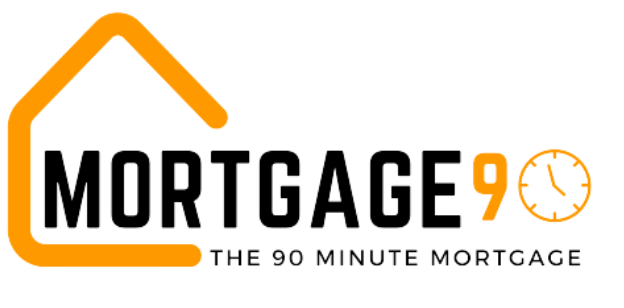Our Services
Saying "Yes" to Mortgage 90 means saying yes to the easiest mortgage experience you're yet to have.
Alongside our market leading mortgage products available, we have access to industry-leading solicitor services and insurance products to support a speedy mortgage process and ensure you are protected.
Learn more about our services below!

Our Services
Saying "Yes" to Mortgage 90 means saying yes to the easiest mortgage experience you're yet to have.
Alongside our market leading mortgage products available, we have access to industry-leading solicitor services and insurance products to support a speedy mortgage process and ensure you are protected.
Learn more about our services below!
First Time Mortgages
Buying your first home can prove to be quite challenging, especially if you don't have the right help. At Mortgage 90, we provide you with years of experience so that you're assisted at every step of the way, from the initial enquiry to getting the keys to your very own dream home.
Here are some key aspects to consider:
Deposit: One of the first steps is saving for a deposit. The amount required can vary depending on your credit score, but it's typically 5% of the property's purchase price. The larger the deposit, the better, as it often leads to more favourable mortgage terms.
Loan-to-Value Ratio (LTV): The LTV ratio is the proportion of the property's value that the mortgage will cover. For example, if you have a 10% deposit, you'll need a mortgage with a 90% LTV ratio.
Affordability: Lenders assess your ability to repay the mortgage based on your income and outgoings. They typically use an affordability assessment to ensure you can manage the repayments, taking into account your regular expenses.
Credit History: A good credit history is crucial for securing a favourable mortgage. Lenders use your credit score to evaluate your creditworthiness. If you have a limited credit history, it's a good idea to build it up before applying for a mortgage. This doesn't necessarily mean that if you have a low credit score or credit impairments you won't be able to secure a mortgage, it just means that you may have to be placed with a specialist lender and they typically have higher interest rates than high street lenders.
Types of Mortgages: There are various mortgage types, such as fixed-rate mortgages (interest rate remains constant for a set period), variable-rate mortgages (interest rate can fluctuate in line with the Bank of England base rate), and adjustable-rate mortgages. Each has its pros and cons, and the choice depends on your preferences and financial situation.
Government Schemes: In the UK, there are government schemes or initiatives aimed at assisting first-time buyers. These may include programs like a 'lifetime ISA' which is designed to encourage people to save for their first home, the government will give you a 25% bonus on your contributions up to a maximum of £1,000 per year.
Professional Advice: It's advisable to seek professional advice when navigating the mortgage process. Mortgage 90 can help you find the best deals and guide you through the entire application process.
Hidden Costs: Consider additional costs beyond the mortgage itself. Legal fees, property taxes, insurance, and maintenance costs can add up, so it's important to budget for them. There's no stamp duty for first-time buyers on the first £425,000 of a main residential property (providing the property you're buying costs £625,000 or less).
Pre-Approval: Getting pre-approved for a mortgage will give you a clearer idea of how much you can borrow and may make you a more attractive buyer to sellers. Estate agents will usually ask for proof of funds (decision in principle) before accepting your offer and marking the property as sold.
Long-Term Planning: Think about your long-term plans when choosing a mortgage. Some mortgages may have penalties for early repayment or may not be portable if you decide to move homes in the future. Speak to one of our advisors and they can explain the different options.
Shared Ownership
Shared ownership mortgages are a specific type of home financing arrangement that allows individuals to purchase a share (portion) of a property, typically ranging from 25% to 75%, and pay rent on the remaining share. This type of mortgage is often used by first-time buyers or those with limited financial resources.
Here are some key points to consider about shared ownership mortgages:
Shared Ownership Structure: In a shared ownership arrangement, the buyer purchases a percentage of the property and takes out a mortgage for that share. The remaining portion is owned by a housing association or the property developer, and the buyer pays rent on this share.
Staircasing: Shared ownership often allows buyers to increase their ownership stake over time through a process called "staircasing." This involves buying additional shares of the property, gradually reducing the amount of rent paid. Staircasing enables the buyer to eventually own the property outright if they choose.
Eligibility Criteria: Shared ownership schemes often have eligibility criteria. These may include income limits, residency requirements, and a restriction on ownership of other properties. It's important to check the specific criteria set by the housing association or developer.
Mortgage Requirements: When applying for a shared ownership mortgage, lenders typically assess the buyer's ability to afford the mortgage payments and rent. The mortgage amount is based on the percentage of the property being purchased.
Rent Payments: In addition to mortgage payments, the buyer pays rent on the share owned by the housing association or developer. This rent is typically below the market rate and is used to cover the costs of owning and maintaining the property.
Property Management: Shared ownership properties are often managed by a housing association or management company. This entity is responsible for the maintenance and management of the communal areas and may also provide services such as repairs and landscaping.
Selling a Shared Ownership Property: If you decide to sell a shared ownership property, the housing association or developer has the right of first refusal, in most circumstances. This means they have the option to find a buyer for the property before it is offered on the open market.
Affordability and Flexibility: Shared ownership can make homeownership more affordable, especially for those with lower incomes. It offers flexibility for individuals who may not be able to buy a property outright but want to build equity over time.
Remortgages
A remortgage, also known as refinancing, is the process of switching your existing mortgage to a new deal. This can be either with your current lender or a different one. People usually consider remortgaging for various reasons and benefits include reducing monthly payments, accessing better interest rates or releasing equity from the property.
If you are looking at remortgaging, you will already be familiar with the processes of obtaining a mortgage. Here are a number things to consider when remortgaging:
Product Switch: One of the most common reasons to remortgage is if your current fixed rate ends, you will automatically revert to the lenders Standard Variable Rate (SVR), which can be significantly higher. Remortgaging enables homeowners to potentially obtain a lower interest rate, which can result in saving money on monthly repayments.
Equity Release: Homeowners may remortgage to release equity tied up in their property. This can be used for home improvements, debt consolidation, or even to fund another property purchase, such as a buy to let or a holiday home.
Loan To Value: The LTV ratio is the proportion of the property's value that is mortgaged. When remortgaging, lenders often consider the LTV, and a lower LTV ratio can result in better interest rates. Before remortgaging, it's crucial to check for any early repayment charges on your current mortgage. These charges may apply if you switch before a specified period, such as during a fixed-rate term.
Legal and Valuation Fees: Remortgaging typically involves legal and valuation fees. Some lenders offer free valuation and legal services as part of their remortgage deals, but it's essential to be aware of any associated costs.
Credit Checks: Lenders will conduct a credit check when you apply for a remortgage. Maintaining a good credit score is important for securing favourable terms.
Affordability Assessment: Lenders assess your ability to repay the mortgage through an affordability check. This includes considering your income, regular expenses, and other financial commitments.
Length of Mortgage Term: When remortgaging, you can choose to change the length of the new mortgage term, or you can keep it the same, depending on your circumstances. It's essential to consider how this may impact your overall financial goals and monthly payments as they could change.
You may have to pay an early repayment charge to your existing lender if you remortgage prior to expiry of your current terms.
Second Charge Mortgages
A second charge mortgage, also known as a secured loan or homeowner loan, is an additional mortgage product that allows homeowners to borrow money against the equity in their property. They are called a 'second charge' as they are an additional mortgage that runs alongside the primary mortgage, which is known as the 'first charge'.
What Second Charge Mortgages Entail:
An Alternative To A Remortgage: A second charge may be a viable option rather than remortgaging with your current lender due to; not reaching their affordability calculations if you are capital raising, them having criteria that would not allow you to raise capital depending on what you choose to do with the funds you are attempting to receive, you may still be in a fixed term on your primary mortgage and remortgaging could incur early repayment charges.
Secured Loan: A second charge mortgage is a secured loan, meaning it is secured against the value of your property. In the event of non-repayment, the lender has a claim on the equity in your home. "Second charge" refers to the fact that this mortgage is secondary to your primary mortgage. The first mortgage takes priority in the event of foreclosure or sale, and the second charge lender is repaid afterwards.
Loan Amount: The amount you can borrow with a second charge mortgage is typically determined by the equity in your property. The equity is the difference between the property's value and the outstanding balance on your first mortgage. When it comes to second charges, each lender has different criteria regarding maximum loan amounts.
Reasons For Taking Out A Second Charge:
Debt Consolidation: Homeowners may choose a second charge mortgage to consolidate existing debts. By using the equity in their property, they can pay off higher-interest debts and potentially reduce their overall monthly payments.
Home Improvements: Funding home renovations or improvements is a common reason for taking out a second charge mortgage. It allows homeowners to invest in their property without remortgaging their entire home loan.
Business Purposes: Some individuals use second charge mortgages to fund business ventures or investments.
Before considering a second charge mortgage, it's essential to carefully assess your financial situation, consider alternatives and seek professional advice. Whilst these loans can provide additional funds, they come with the risk of losing your home if you fail to meet the repayment terms.
Buy to Let Mortgages
Buy-to-let mortgages are specifically designed for individuals who want to purchase a property with the intention of renting it out to tenants for investment purposes.
Whether you are an experienced landlord or you are looking to get started with building your portfolio, Mortgage 90 can help you find the best lender suited to your needs. If you are buying in your own name or using a special purpose vehicle, we have you covered.
Key points to consider regarding buy-to-let mortgages:
Purpose: The primary purpose of a buy-to-let mortgage is to finance the purchase of a property that will be rented out to tenants. It is not intended for properties that the owner plans to live in.
Deposit: Typically, the deposit required for a buy-to-let mortgage is higher than that for a residential mortgage. It often ranges from 15% to 25% of the property's value. This can come from savings, a gift from an immediate family member or equity released from another property which could be your residential home or one of your existing buy to lets.
Rental Income: Lenders assess the potential rental income when considering a buy-to-let mortgage application. The property's ability to generate rental income is a crucial factor in the decision-making process. Interest rates are normally higher when it comes to buy to lets, this can also impact affordability if rates are high.
Affordability Criteria: While rental income is a key consideration, lenders also assess the borrower's ability to cover mortgage payments, especially if the property is vacant or if rental income is insufficient. Most lenders will have a minimum income requirement from either employment or self employment for extra security to cover any rental shortfalls. The higher the rental income received from the property, the more you could potentially borrow from the lender. Some lenders will even consider using some of your income to boost affordability, this is known as 'Top Slicing'.
Risks and Rewards: While buy-to-let properties can provide rental income and potential capital appreciation, there are also risks involved. Property market fluctuations, maintenance costs and potential periods of vacancy to name a few. Landlords are responsible for managing the property, ensuring it meets safety standards and addressing maintenance issues. Some landlords choose to hire property management services to handle these responsibilities which incurs a cost.
Market Conditions: The profitability of a buy-to-let investment can be influenced by market conditions. Property values, rental demand and other economic factors can all affect profitability. It's important for investors to research the local property market before making a purchase.
Tenant Type: Some lenders may have preferences or restrictions regarding the type of tenants, such as professional tenants, students, or families. If you are looking at 'Housing With Multiple Occupants', It is important to know that different councils have specific regulations regarding HMOs and shared accommodations. It is crucial for landlords and property owners to be aware of and comply with these regulations, which may include safety standards, licensing requirements and rules for habitability.
The Financial Conduct Authority does not regulate some aspects of buy to let mortgages. Your home or property may be repossessed if you do not keep up repayments on your mortgage.
Solicitor Services
In the context of property transactions, solicitors play a crucial role in ensuring that the legal aspects of buying or selling a property are properly handled, this is known as 'Conveyancing'. Conveyancing refers to the legal process of transferring ownership of property from one party to another. It involves a series of legal steps and tasks to ensure a smooth and legally sound property transaction.
Finding an efficient solicitor can be difficult if you don't know what to look for. Mortgage 90 has a panel of expert solicitors to choose from who we can instruct on your behalf to best suit your needs. Using portal systems to track the progress and receive case updates, conveyancing has never been easier.
Stages of Conveyancing:
Pre-Contract Stage: This involves the initial stages of the transaction, such as obtaining necessary documents, conducting property searches, and preparing the contract for the sale.
Exchange of Contracts: Once both parties are satisfied with the terms, the solicitors exchange signed contracts. At this point, the transaction becomes legally binding, and a deposit is usually paid.
Completion: On the agreed-upon completion date, the remaining balance is paid, and ownership is officially transferred. The keys are handed over to the buyer, and the seller vacates the property.
Post-Completion: Solicitors complete the necessary paperwork with land registries and handle any remaining administrative tasks to finalise the transaction.
Conveyancing Fees: Solicitors charge fees for their conveyancing services. These fees cover the legal work involved in the transaction. Solicitors also charge for disbursements, which are additional costs related to the transaction, such as search fees and land registry fees.
Home Insurance
Building and contents insurance is a must when you become a homeowner. Our partnerships with leading insurers mean we can find you the best packages so that you have the best security to cover your home if the unexpected happens. Buildings insurance is compulsory for lenders and provides protection and peace of mind for homeowners. It's important to carefully review policy terms, understand coverage limits, and work with your insurance provider to tailor a policy that meets your specific needs.
Get in touch for some quotes from one of our advisors today!
Protection Insurance
Protection is potentially the most important part of the mortgage process when it comes to making sure you are covering you and your family, especially when you have large financial commitments such as a mortgage. At Mortgage 90, we use a select list of expert providers to give you the piece of mind that your family and home are protected if anything was to happen. From life insurance to income protection, we will make sure you are covered to avoid any shortfalls.
Get in touch for some quotes from one of our advisors today!
*Please note that whilst Mortgage 90 Ltd will aim to get you a decision in principle in 90 minutes, in some circumstances, this may not be possible due to factors such as your credit file, mortgage requirements etc.
Sign up to our newsletter for more mortgage and property advice
I confirm that I want to receive information from Mortgage 90 using any contact details I provide. I have also read and understood the privacy policy, click here to view.
Contact us

